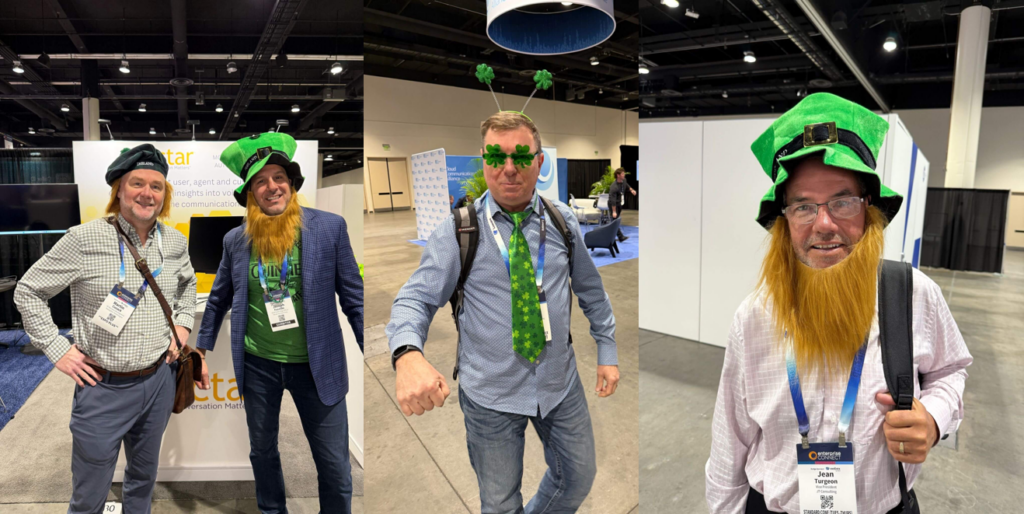Most people think of phone calls as background noise – the least remarkable part of modern business. But that’s only true if you’re not paying attention. In practice, voice and video communications are the front line. They are the moment when problems get solved, trust gets built, deals get made, and lives get saved. When you start to unpack what’s really happening on these calls, one truth becomes clear:
Every conversation matters.
Not some. Not most. All of them. Because you never know which one will carry real consequences until it’s too late to fix it.
A 15-Minute Outage Can Destroy a Day’s Work
Let’s start with something simple: time.
Take a typical enterprise with a global presence, 500+ users on Microsoft Teams, Zoom, or Cisco, integrated with contact center platforms and legacy systems. Now pull the plug for just 15 minutes.
That’s:
- A sales team disconnected mid-negotiation
- A customer support operation blind during peak volume
- A CEO dropped during a board call
- And every frontline employee left stranded without comms
It doesn’t take an hour-long outage to do damage. Just a few minutes of downtime in the wrong place at the wrong time can create a cascade of failure. Customers get frustrated. Deals stall. Teams get paralyzed. SLAs are breached.
And the worst part? Most of it’s preventable. You just have to be watching.
In Critical Situations, Failure Isn’t Measured in Dollars
There are calls where the consequences of failure go beyond business impact. They’re measured in lives.
Take e911. Every enterprise is required to comply with enhanced 911 rules for a reason: emergency services must know where to go, and they must be able to hear clearly. This is not a luxury – it’s a mandate.
When an employee makes a 911 call from an IP phone or softphone and that call drops, routes incorrectly, or has degraded audio, it’s not a technical glitch. It’s a life-threatening failure.
Now consider suicide prevention hotlines and mental health emergency services. These organizations rely on voice quality. People calling are often at their lowest point. If a call fails or audio is distorted, the result can be catastrophic.
We’ve seen the impact first-hand. That’s why we treat this kind of monitoring with the seriousness it demands.
The “Everyday” Calls Are Just as Critical
Some of the most important conversations are the least dramatic on the surface.
Take a call to verify insurance coverage. A hospital finance rep calls an insurer to confirm eligibility for a procedure. Or a mother calls her provider to understand what’s covered for her child’s medication.
If that call fails – if it drops, or never connects, or has such poor quality it has to be rescheduled – care is delayed. Confusion grows. People postpone treatment, or avoid it altogether.
Every one of those “routine” conversations is a gateway to care, stability, and forward motion. When you interrupt that, you create unnecessary friction in already complex systems.
In other words, even when the conversation isn’t urgent, it can still be critical.
You Never Know Which Call Will Be the One That Matters Most
That’s the reality. You can’t predict the moment where quality or reliability becomes mission critical.
It could be a call with a supplier renegotiating a contract. A customer complaining about a service failure. A product engineer calling in a defect from the field.
Or it could be a veteran on the line with a counselor trying to hold on.
You don’t know. So you treat every call as if it’s the most important one you’ll handle that day. Because it might be.
What We Do, and Why It Matters
At Nectar, we assure communications performance across complex, hybrid environments. We don’t do it to tick compliance boxes or chase vanity metrics. We do it because we know what’s at stake.
- We monitor call quality in real time
- We trace failures across multiple layers – network, SBC, carrier, platform, endpoint
- We alert proactively, not reactively
- And we make sure the people responsible for fixing problems have the insight to act fast
Our clients trust us because they’ve lived through what happens when visibility is lacking. And because we don’t treat voice like an afterthought.
This isn’t about software. It’s about people.
Behind every call is a person trying to do something important. Sometimes it’s routine. Sometimes it’s high-stakes. Sometimes it’s life-or-death.
Every conversation matters.
And we’ve built our platform around that simple, powerful truth. Want to learn more? Let’s connect.
This was co-written by Christina Styers & Seth Oestreicher






